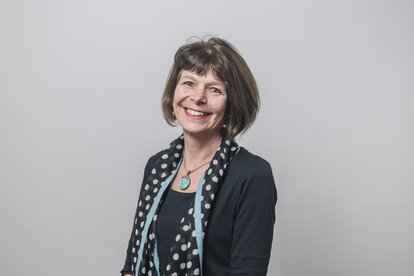Replacing the office carpet required a complete emptying of shelves last week, and a possibly cathartic binning of many old, outdated books and papers. “Possibly cathartic” because there is also something depressing in jettisoning the evidence of so much work, with the inevitable questioning of what was learned. One book that caught my eye was the boldly titled “Reasons for Success – Learning From Instructive Experiences in Rural Development” (1998). Since I recognised the name of one of the authors, Norman Uphoff, I opened it. “This work will become not only influential but also a solid basis on which to build programs that respond to the most enduring problems of development” was the first quote in a long list of endorsements.
After various disclaimers on the use of the word “success” (along the lines that nothing is ever perfect), in its final chapter the book identifies four criteria for planning successful rural development programmes:
- Resource mobilisation with the aim of self-reliance and self sufficiency
- Scaling up and expansion
- Diversification – investing in local capacities to respond to a variety of challenges
- Continued innovation, with maturing institutional relationships “that enable rural people to have more control over their situations and futures”.
Nearly 20 years later, I doubt anyone working in rural development would question these conclusions. More than that, though, I thought back to a recent conversation with our Country Programme Director in Benin, Bruno Poitevin, and realised that each of these success criteria nicely apply to our rural education project PAEFE that he described to me.
Background on the project
In the more remote parts of rural Benin, many children do not attend school, or rapidly drop out. Reasons include the long distances to government schools, overcrowded classrooms, difficulties in understanding the teachers (who speak in French), and a perception on the part of parents that the cost is too great and/or that they will learn nothing useful anyway. These children generally belong to the more disadvantaged ethnic groups in the country; 60% of them are girls. With funding from the Swiss Agency for Development and Cooperation and Solidar Swiss, the PAEFE supports informal education centres known as Barka. These combine practical vocational training with more basic education, offered in four local languages – Baatonu, Boo, Fulfulde, Nago – as well as French, which is used increasingly as the pupils move up the school years.
Resource mobilisation
The Barka centres are established through the local communes, so they have institutional anchoring. Importantly, they are in part funded by the local communities themselves. That is, a local contribution is made in labour for construction and maintenance, including the operation of school canteens which are entirely auto-financed. Each school – 57 are fully established so far – is run by a management committee made up of elected parents of the pupils. Self-reliance and self-sufficiency was a clear aim from the beginning.
Scaling up
It is particularly encouraging that the idea of informal education in the local language has been taken up by the Ministry of Education. Expansion beyond the original seven communes covered in the first phase of PAEFE is taking place in six more. Educational materials in appropriate languages are becoming available to many more girls and boys.
Diversification
The Barka centres have been designed to respond to local educational needs and challenges. Pupils are not only taught basic literacy and numeracy, but also practical skills such as agriculture and artisanal crafts, according to local needs and employment opportunities.
Innovation
In Benin, the very fact of commencing children’s basic education in their mother tongue was an innovation, but an excellent one that is supported by global evidence. The aim is for the centres to continue to respond innovatively to the demands of pupils and parents. For example, recognising that without birth certificates, children cannot sit any national exams or indeed have any of their rights as citizens recognised, the centres support parents and pupils in obtaining such certificates.
One fact that stuck in the mind from speaking with Bruno was that in 2015, 77% of Barka pupils passed the national exam at the end of primary school. Given the disadvantages that these pupils have faced, this is an excellent result, comparing well with the national average of 89%, and 83% in the department of Borgou in which the Barka centres lie. (The pass rates for 2016 are controversial, due to a new marking system). For anyone wishing to read more about the Barka centres, a capitalisation document (in French) is available on the Helvetas website, as are a number of videos.


